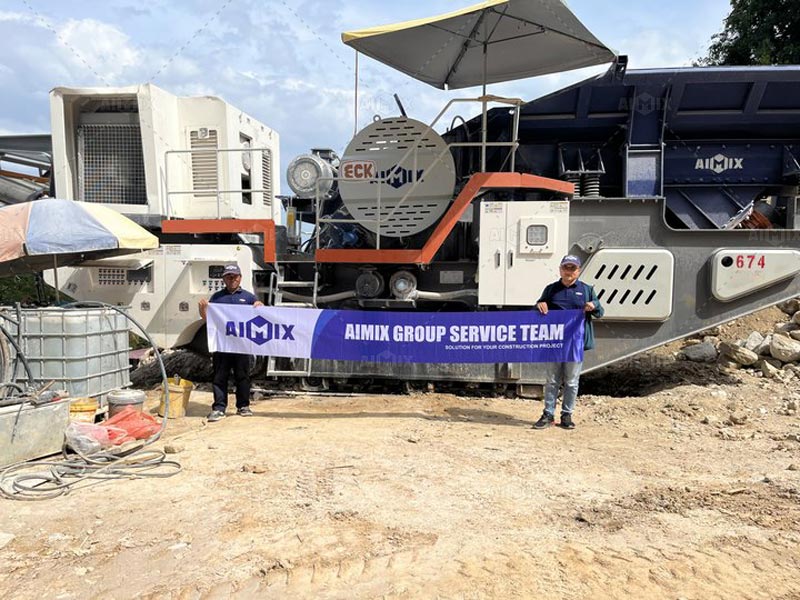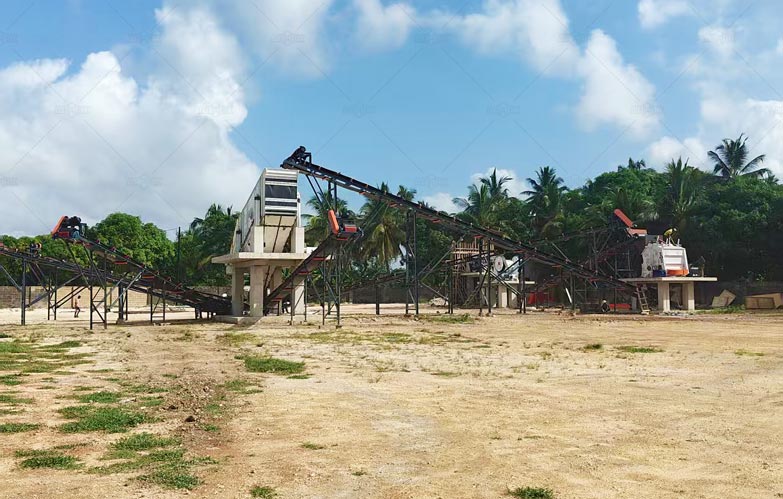
The mining and construction industries rely heavily on high-quality aggregates for infrastructure, road building, and industrial applications. Selecting the right aggregate plant equipment is critical to ensure operational efficiency, product quality, and long-term profitability. With numerous options available in the market, understanding the key parameters that influence plant performance helps operators make informed decisions.
An aggregate plant(planta de agregados) is designed to crush, screen, and process raw materials into usable aggregates of various sizes. The choice of equipment impacts productivity, maintenance costs, and the overall lifecycle of the plant. In Latin America, for instance, buyers looking for an aggregate crusher plant for sale Chile often evaluate multiple factors such as capacity, power requirements, and adaptability to local rock types.
Before investing in a plant, it is essential to analyze project requirements, including expected output, material types, and site conditions. A plant that is well-matched to these conditions will maximize efficiency and minimize operational challenges.

One of the first considerations when selecting an aggregate plant is its production capacity. Plants are rated based on tons per hour (t/h), and capacity must align with project demands. Overestimating capacity can lead to underutilized equipment and unnecessary costs, while underestimating it can cause bottlenecks and project delays. Operators should consider both peak production requirements and continuous operational efficiency.
Different rock types, such as limestone, granite, and river stone, have varying hardness, abrasiveness, and moisture content. These characteristics directly affect crusher selection and plant design. For instance, hard rocks require robust jaw or cone crushers, while softer materials may be processed efficiently with impact crushers. Screening and sorting equipment should also be chosen based on the desired aggregate size and quality.
Power consumption is a critical factor in operating costs. Aggregate plants with efficient motors, variable frequency drives, and automated control systems help reduce energy usage while maintaining consistent output. Selecting a plant with the right power rating ensures smooth operation without overloading the electrical system, especially in remote areas where power supply may be limited.
Projects often evolve over time, requiring changes in production or material handling. An aggregate plant that allows flexibility in configuration and scalability can adapt to these changes efficiently. Modular plants or mobile units provide additional advantages, allowing operators to relocate equipment or expand capacity as needed.
Crushers and screens are subject to wear and tear, especially when handling abrasive materials. Choosing equipment with durable liners, high-quality bearings, and accessible maintenance points reduces downtime and repair costs. Regular preventive maintenance schedules should be planned based on the plant’s operating conditions and material characteristics.
Modern aggregate plants incorporate automation and control systems that optimize crushing, screening, and material handling processes. Intelligent controls allow operators to adjust settings remotely, monitor performance, and detect potential issues before they become critical. These systems improve efficiency, reduce labor requirements, and ensure consistent product quality.
Dust suppression, noise reduction, and water recycling are important environmental parameters to consider. Many regions, including Latin America, have strict regulations regarding environmental impact. Selecting a plant with integrated dust and water control systems ensures compliance and enhances community relations near mining or construction sites.
While initial equipment cost is an important consideration, operators should evaluate the total cost of ownership, including maintenance, energy, and potential downtime. A higher initial investment in a high-quality, efficient aggregate plant can yield long-term savings and better profitability compared to cheaper, less efficient alternatives.

In Latin America, buyers seeking an aggregate crusher plant for sale Chile(planta chancadora de áridos venta chile) have access to a variety of manufacturers and suppliers. Local knowledge of rock types, logistics, and support services is crucial for selecting equipment that meets project needs. Evaluating vendor reputation, after-sales support, and spare parts availability ensures smooth operation and reduces risks associated with equipment downtime.
Selecting the right aggregate plant equipment requires careful consideration of multiple factors, including production capacity, material characteristics, power requirements, flexibility, maintenance, automation, and environmental compliance. By analyzing project-specific needs and understanding local market conditions, operators can choose a plant that maximizes efficiency, minimizes costs, and ensures long-term operational success. Proper planning and informed decision-making help achieve reliable aggregate production and contribute to the overall success of mining and construction projects.